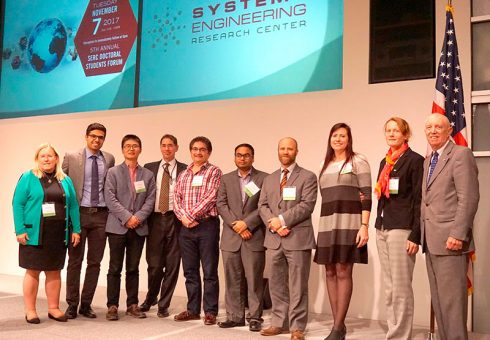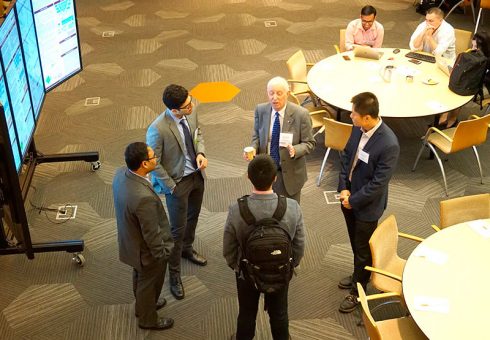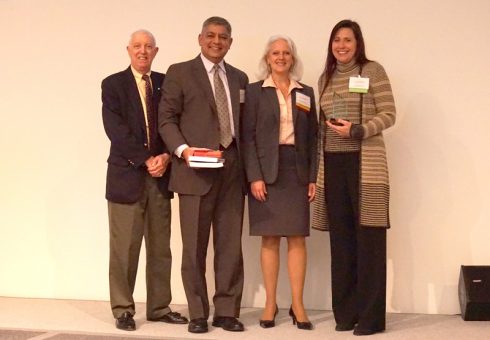Program Description
In a world characterized by rapidly accelerating technologies and complexities, Systems Engineering and a system-oriented workforce are fundamental in providing solutions to the most challenging global problem.Built on a foundation of education and training, the SERC Doctoral Fellows Programs consists of selected SERC Collaborator Universities and participating US based organizations that nominate and select employees to become Ph.D. students with a focus on systems-related research that is consistent with SERC vision.Based upon their size and annual revenue, participating organizations sponsor a specific number of Doctoral Fellows each year. These fellows receive tuition reimbursements through their employers and are allocated one work day per week to dedicate towards their doctoral studies and research from sponsoring organizations.
Program Precepts
- Sponsoring employer agrees to participate in the SERC Doctoral Fellows Program. The employer agrees to sponsor a specific number of Doctoral Fellows per cohort depending upon the employer’s size and annual revenue.
- Sponsoring employer agrees to provide their Doctoral Fellows with one work day per week to devote solely to their doctoral studies and research.
- Sponsored Doctoral Fellows Candidate must apply for acceptance into Ph.D. program at one or more of the SERC collaborating universities. Candidate selects one of the schools to which he has been accepted as his host university.
- Candidate must meet all of the entry and graduation requirements of the host university in order to successfully complete the program and graduate.
- Candidate’s doctoral committee must consist of at least one member who has been a SERC project Principal Investigator (PI) or co-PI and at least one member from a SERC collaborating university other than the host university.
Program Benefits
Through the Program, the SERC provides an opportunity for future systems engineers to collaborate with researchers across the US, and develop one-on-one relationships with thought leaders who serve as mentors during the doctoral process. The overall benefits of the program from the perspective of the sponsoring organizations, research collaborators, and doctoral fellows are summarized below.
Sponsoring Organizations
- Research results more readily adopted by broader community.
- Develops collaborative ecosystem of government, academia, and industry that drives the translation of the research into methods, processes, and tools of pragmatic utility.
- Specific research initiatives will be accelerated through the participation of doctoral students sponsored by industry, government labs, national labs, and FFRDC’s.
- Significant enhancement of the systems engineering and systems-oriented workforce within and supporting the Department of Defense.
Research Collaborators
- Researchers get valuable insight into current problems in the world of practice and how their research can contribute to addressing these challenges. This insight gives an opportunity to demonstrate the relevance of research and to validate results.
- Collaboration researchers have access to an expanded pool of reviewers and contributors to research tasks.
- Research will be more rapidly transitioned to practice through the dedicated activities of Doctoral Fellows.
Doctoral Fellows
- Doctoral fellows become part of a dynamic network of thought leaders within the systems discipline.
- They have access to leading systems thinkers as research advisors.
- They have the benefit of working on research considered relevant and significant by their organization’s leadership within the discipline spanning industry, government, and academia.
- They have expanded opportunities for professional development, growth, promotion, and continued employment within the systems engineering field



